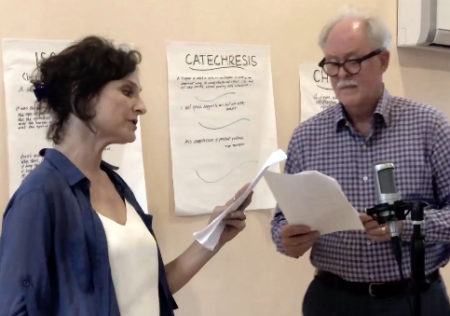

In the philosophy of language the term "colloquial language" refers to ordinary natural language, as distinct from specialized forms used in logic or other areas of philosophy. It is the variety of language that speakers typically use when they are relaxed and not especially self-conscious. Colloquial language is distinct from formal speech or formal writing. Colloquial language is a variety of language commonly employed in conversation or other communication in informal situations.

Other examples of colloquial usage in English include contractions or profanity. (Colloquial / slang (colloquialism)) A colloquy is a formal word for conversation Characteristic of or appropriate to ordinary or familiar conversation rather than formal speech or writing Appropriate to, used in, or characteristic of spoken language or of writing that is used to create the effect of conversation. Slang is permitted in colloquial language, but it is not a necessary element. Some colloquial speech contains a great deal of slang, but some contains no slang at all. The colloquial language of the East End is based on the Oslo dialect (austkantsmål), whereas the colloquial language in the West End is based on the educated bokmål. Titta igenom exempel på colloquy översättning i meningar, lyssna på uttal och lära dig grammatik. Colloquialism is related to, but not the same as slang. Kontrollera colloquy översättningar till svenska. Dictionaries often display colloquial words and phrases with the abbreviation colloq. A colloquialism is a word, phrase or other form used in informal language. En el campo del atomismo lógico, el significado se evalúa de una manera diferente que con proposiciones más formales. En la filosofía del lenguaje el término "lenguaje coloquial" se refiere al lenguaje natural ordinario, a diferencia de las formas especializadas utilizadas en la lógica u otras áreas de la filosofía.

Es la variedad de la lengua que los altavoces utilizan típicamente cuando están relajados y no especialmente auto-consciente. El lenguaje coloquial es distinto del lenguaje formal o de la escritura formal. El lenguaje coloquial es una variedad de lenguaje comúnmente empleado en la conversación u otra comunicación en situaciones informales. Otros ejemplos de uso coloquial en inglés incluyen contracciones o profanidades. El argot se permite en lenguaje coloquial, pero no es un elemento necesario. Algún discurso coloquial contiene una gran cantidad de argot, pero algunos no contiene argot en absoluto. El coloquialismo está relacionado con, pero no lo mismo que el argot. Los diccionarios a menudo muestran palabras coloquiales y frases con la abreviatura colloq. Madame pedig, a büszke n, aki nem ismerte a várakozást, várt, várta, hogy a két férfi néma beszélgetése véget érjen. Madame, who, in her pride, had never known what it was to wait, now waited, until this mute colloquy was ended. Colloquialism Un coloquialismo es una palabra, frase u otra forma utilizada en lenguaje informal. The colloquial name given to the fish is pilchard.


 0 kommentar(er)
0 kommentar(er)
